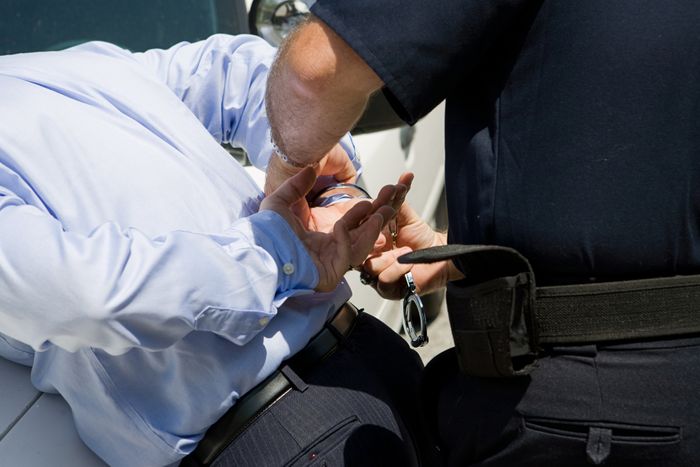
- August 11, 2025
- |bodyguard, Los Angeles, security guard company, security guard services
- | 0
Can Bodyguards Protect Their Clients From Arrest?
The short answer is no. A bodyguard, no matter how highly trained, does not possess the legal authority to prevent a sworn police officer from making a lawful arrest. Interfering with an arrest can expose both the bodyguard and the client to additional criminal charges such as obstruction, resisting arrest, or assault on an officer.
What Bodyguards Can Do When Police Appear
- De-escalate the situation: Using calm verbal skills to prevent the client from making self-incriminating statements or sudden movements.
- Document the encounter: Recording time, officers’ badge numbers, and witness statements for later legal counsel.
- Ensure procedural compliance: Confirming police read Miranda rights, follow the correct search-and-seizure protocols, and respect medical needs.
- Facilitate legal counsel: Promptly contacting the client’s attorney and ensuring the client invokes the right to remain silent.
What Bodyguards Cannot Do
- Physically block or fight officers attempting a lawful arrest.
- Hide evidence or help the client flee (this constitutes obstruction of justice).
- Impersonate law enforcement or claim arrest powers.
- Use “professional courtesy” to ask officers to overlook legitimate charges—such requests are at the officer’s discretion and are not guaranteed.
Crisis Management Instead of Obstruction
Elite bodyguards are trained in crisis management, not law-enforcement override. If a client is about to be arrested, the guard’s role shifts to:
- Assess immediate safety threats to the client and bystanders.
- Create a safe perimeter to prevent additional harm.
- Coordinate with legal counsel for prompt bail and court support.
In extreme cases, such as false arrest or life-threatening police misconduct, the bodyguard may file formal complaints later through legal channels rather than resist on the spot.
Liability & Legal Boundaries
Using force against police can lead to felony charges for both the bodyguard and the client. Insurance policies covering bodyguard work typically exclude claims arising from illegal interference with law enforcement .
Bodyguards are protectors, not arrest-blockers. Their value lies in risk mitigation before police involvement and in safeguarding the client’s rights and well-being after an arrest has been initiated. Attempting to shield a client from lawful arrest is not only ineffective, it can multiply legal troubles for everyone involved.
Frequently Asked Questions: Bodyguards & Client Arrests
Can a bodyguard legally stop a police officer from arresting me?
No. Only a judge can intervene in an arrest. A bodyguard who obstructs, resists, or attempts to prevent a lawful arrest can be charged with obstruction of justice or assault on an officer.
What should a bodyguard do if the police arrive to arrest me?
Remain calm, document the encounter, ensure officers follow proper procedure (Miranda rights, warrant presentation), and immediately contact your attorney. The bodyguard’s role is support, not obstruction.
Can the bodyguard carry my firearm if I’m being cuffed?
If you legally possess the firearm, the bodyguard may secure it for safekeeping, but only with police permission and a valid transfer of custody. Otherwise, officers will take possession as evidence.
Is the bodyguard required to testify about the arrest?
Yes. Bodyguards must comply with subpoenas and provide truthful witness statements. Refusal can result in contempt of court.
What happens if the arrest appears unlawful?
The bodyguard should document details and allow the arrest to proceed. Any challenge to legality must be handled later by your attorney through motions, complaints, or civil suits—not on the street.
Will my security company’s insurance cover legal battles related to an arrest?
Standard bodyguard policies exclude coverage for illegal acts or obstruction of justice. Coverage is maintained only when the guard acts lawfully and does not interfere with police duties.
Can a bodyguard help me post bail?
Yes. Once you are booked, the bodyguard or their manager can contact a bondsman, deliver personal items, and arrange transportation after release.
Does the bodyguard stay with me inside the police station?
No. Officers will not allow non-law-enforcement personnel in interview rooms. The bodyguard waits outside or at a designated area and can rejoin you once you are released.
Can I sue the bodyguard if I’m convicted because of evidence they failed to stop?
Bodyguards are not responsible for the outcome of criminal proceedings. Their duty is safety, not legal defense. Any lawsuit would need proof of gross negligence outside the scope of their role.
How do I hire a bodyguard who understands these legal limits?
Call (866) 407-4342 and request an executive-protection specialist trained in lawful arrest protocols. We provide a written policy guide before services begin.


